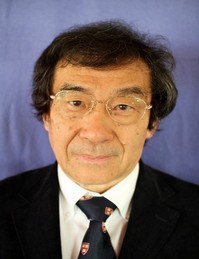|
TU Weiming
发布时间:2019-10-16 03:09:49
|

Introduction : Tu Weiming is Professor of Philosophy and Director of the Institute for Advanced Humanistic Studies at Peking University, Professor Emeritus at Harvard University, a fellow of the American Academy of Arts and Sciences. Tu was born in 1940 in Kunming, and grew up in Taiwan, receiving his B.A. from Tunghai University before completing his M.A. and Ph.D. degrees at Harvard University. Tu’s prominent publications include Neo-Confucian Thought in Action: Wang Yangming’s Youth, Centrality and Commonality: An Essay on Confucian Religiousness, Humanity and Self-cultivation, Confucian Thought: Selfhood as Creative Transformation, Way, Learning, and Politics: Essays on the Confucian Intellectual, and Global Significance of Concrete Humanity: Essays on the Confucian Discourse in Cultural China. Tu has been instrumental in developing international discourses on Dialogue among Civilizations and the idea of Cultural China, and has also offered critical reflections on the limits of the Enlightenment mentality and the challenge of multiple modernities. Acceptance Speech: Good morning to you all. I am extremely honoured to accept this award, but also, frankly, quite terrified. In order to express some of my gratitude, allow me to offer you some unfinished thoughts on a topic which has much exercised me in recent years - namely, the question of ‘learning to be human’. The 24th World Congress of Philosophy was held in Beijing in 2018 under this very rubric: ‘Learning to be Human’. The 2015 International Institute of Philosophy Annual Conference (‘Dimensions of the Human’) also took place in China. Philosophical interest in the concept of the ‘human’ can be traced back to the Axial Age, when Greek, Hebrew, Indian and Chinese thinkers all began to ask some of the same questions about ultimate meaning; it is nice to see that some of this wisdom is still alive today as we reflect on our contemporary predicament. In a context of serious risk of irreversible environmental damage, upheaval in the global political order, resurgent racism and nationalism, and a gradual commodification of social relationships, it is my hope that individual human beings will still find space for self-reflection and the construction of an inner spiritual world in which the pursuit of meaning and the study of how best to carry oneself in a variety of challenging situations might culminate in a conscious awareness of how best to be human. Such self-awareness is naturally embodied in our relationships with ourselves, our social environments, nature, and even Heaven itself. The Confucian ideal of tianrenheyi or ‘the harmonious union of Heaven and humanity’ is not only the ultimate horizon of learning to be human, but also something that everyone can achieve in her daily life. This Confucian ‘spiritual humanism’ faces four main challenges today: 1) to promote individuals’ relationships with themselves, their bodies and minds and spiritual natures; 2) to strengthen human relationships, starting with the family and extending all the way from the local community to the human world as a whole; 3) to transcend anthropocentrism, and establish a sustainable, harmonious relationship with nature; and 4) to facilitate human beings’ dialogue with Heaven. I hope and believe that the humane principle at the heart of Confucianism, strengthened by dialogue and contact with other civilizations, will allow us to build on the gains of the Enlightenment, transcend the excesses of the recent ‘Secular Age’, and offer important resources for humanity’s 21st-century philosophical conversation with itself.
|
